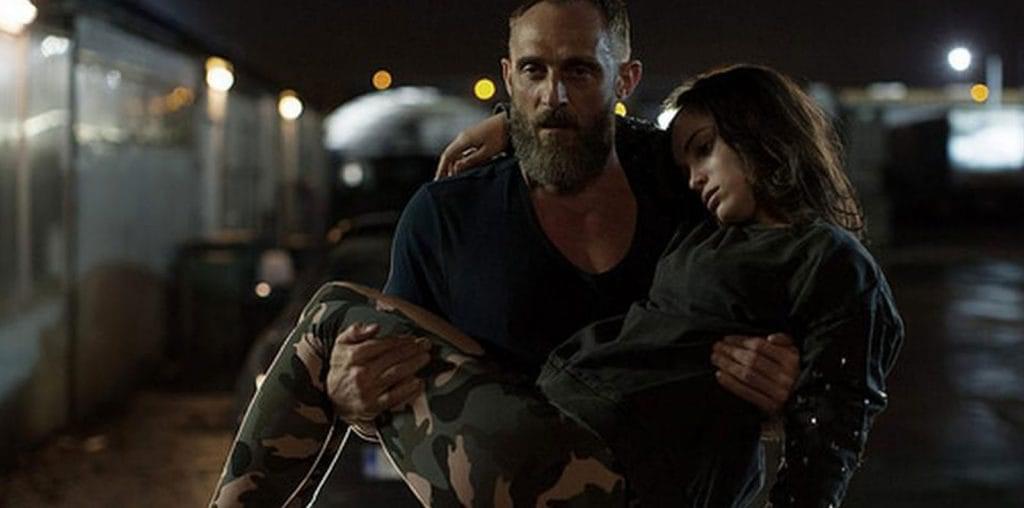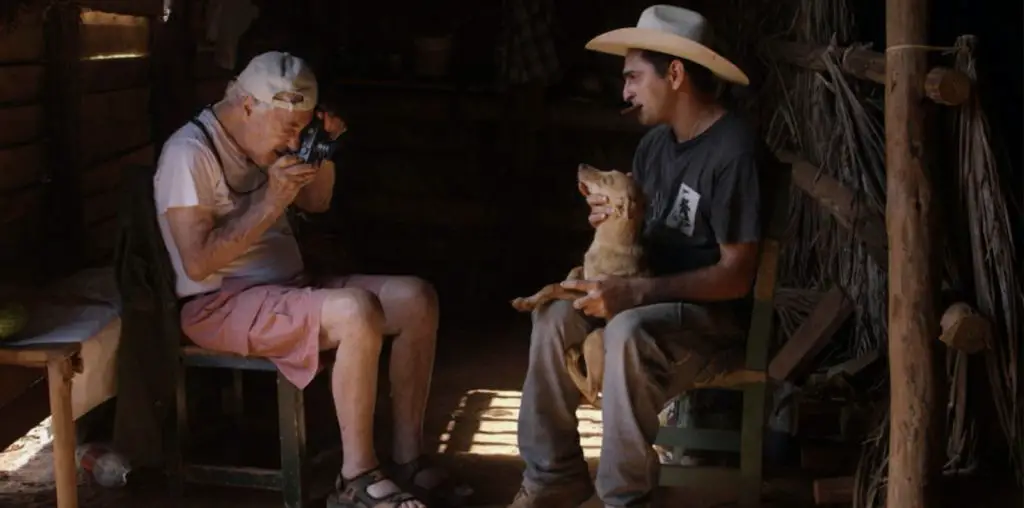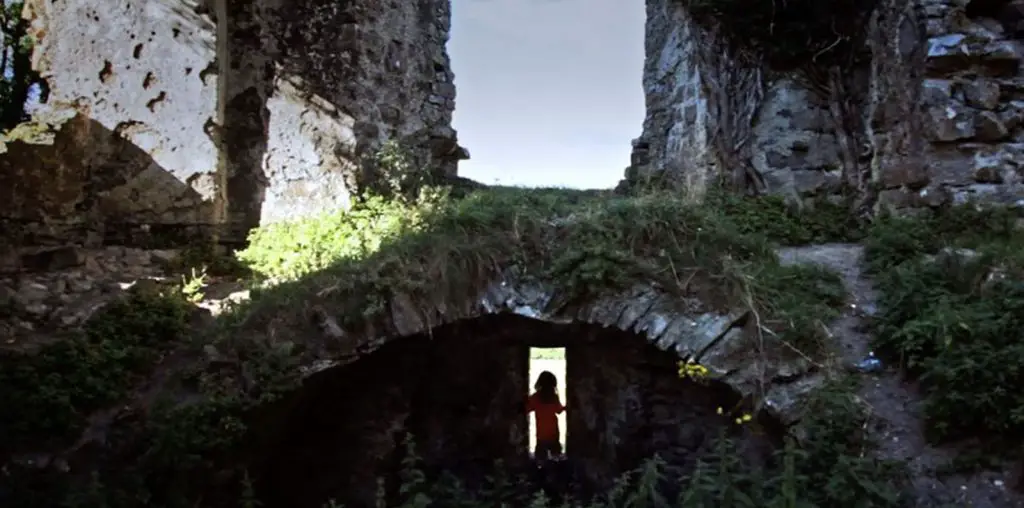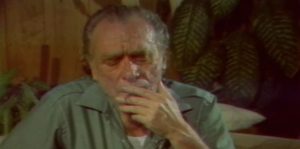
I would say that the first time I read anything of Charles Bukowski’s was when I was around 18-19, and I borrowed a copy of Post Office from a friend. I had always been a fan of literature that showed the sides of humanity that weren’t readily available on network television or in “polite society.” Authors such as Henry Miller and William S. Burroughs are perennial favorites of mine. So Bukowski fit right in with them. He has his own very distinct world view and doesn’t give a sh** about what you think of it.
I have read most of Bukowski’s books, particularly his poetry, which shows the glint of hope in a hopeless world. So I was more than happy to know there was yet another movie about him. I loved The Last Straw, which was more focused on his work, so I naturally wanted to see You Never Had It: An Evening With Bukowski because it focused on the man himself. You Never Had It contains footage from an Italian television interview, from 1981, with Bukowski conducted by journalist Silvia Bizio.
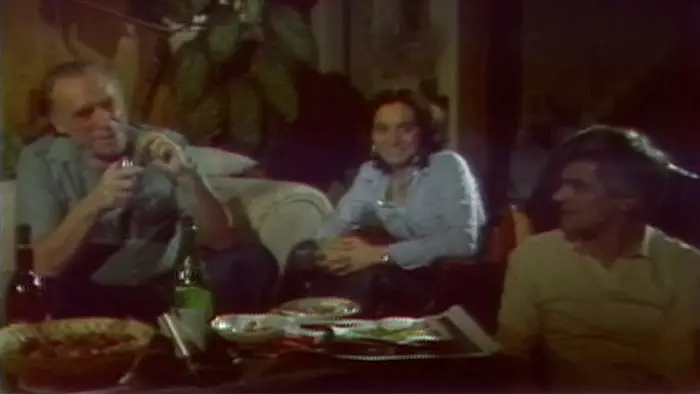
“…an Italian television interview, from 1981, with Bukowski conducted by journalist Silvia Bizio.”
The interview takes place at Bukowski’s home in San Pedro, California, where he lived with his partner Linda Lee Beighle, who is also present for most of the film. He married her in 1985 and was with her until his death in 1994. Silvia Bizio tries to get to the heart of a man who is not so ready to divulge all of his secrets. Bukowski had both an extremely cynical and extremely sentimental point of view of life. His sentimentality, which ran in short supply, often comes out the most in his poetry. There’s not a lot of it to be seen in the interview.
I loved watching You Never Had It: An Evening With Bukowski because it’s closest you’ll ever be to hanging out and drinking with the man himself. I found myself pausing the film every 5 minutes or so to write down something hilarious or poignant that he said, which meant it took me a couple of days to watch a 53-minute film, but in my opinion, it was worth it. One of my favorite parts of the interview is when Bizio asks him if he met French existential philosopher/writer Jean-Paul Sartre. Satre had referred to Bukowski as “the only poet in America.” Bukowski said that he doesn’t like hanging out with other writers.
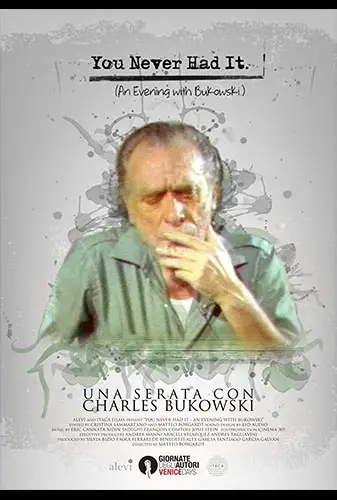
"…always inspiring to see a person be so unabashedly themselves..."
